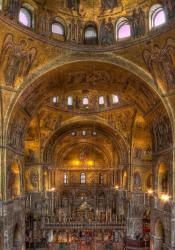Claudio Monteverdi and L’Orfeo
Claudio Monteverdi was an Italian composer who played a key transitional role between Renaissance and Baroque music and is known for the development of opera. He was baptized in 1567 in Cremona, Northern Italy. Presumably, Monteverdi received musical education, though no records of any teaching remain beyond attributions in his first compositional collection at age 15. When he was 24, he moved to Mantua to work for Duke Vincenzo I Gonzaga of Mantua. Vincenzo held him in high regard, and in 1601, Monteverdi became the highest-ranking musician in Vincenzo’s court. Throughout this time, Monteverdi continued publishing his work, including madrigals, canzonettas, and other musical forms. In 1606, L’Orfeo was commissioned, and the opera gave two performances the following spring.
Monteverdi’s L’Orfeo is the oldest surviving work of opera that is still performed today. In other words, it is the “first opera that actually ‘works’” (NPR). It is a retelling of the Greek Orpheus and Eurydice myth, and clear storylines, along with its innovative polyphony use, create the compelling insight into human emotion that made it so successful in its time.
However, as Monteverdi was attacked for his progressive use of harmony and musical modes, he toiled on his compositional work, and as his personal life became more stressful, Monteverdi began to seek alternative employment. When Duke Vincenzo died in 1612, Monteverdi was dismissed. He found employment as a maestro at the basilica of San Marco in Venice, where he wrote religious work while still fulfilling secular commission work. After outside problems like war and plague caused uncertainty in Monteverdi’s world, he became a priest in 1632. The first open house in Europe opened in 1637, and after this, Monteverdi contributed three new works to the stage in 1640, 1641, and 1643. In 1643, he died and was buried in Venice. (300)
Sources:
Arnold, Denis Midgley. “Claudio Monteverdi.” Encyclopædia Britannica, Encyclopædia Britannica, Inc., 25 Nov. 2021, https://www.britannica.com/biography/Claudio-Monteverdi.
Carter, Tim, and Chew Geoffrey. “Monteverdi [Monteverde], Claudio.” Grove Music Online, Oxford Music Online, 2001, https://www-oxfordmusiconline-com.pointloma.idm.oclc.org/grovemusic/view....
“The Root of All Opera: Monteverdi's 'Orfeo'.” NPR, NPR, 8 Jan. 2010, https://www.npr.org/2010/01/08/122328598/the-root-of-all-opera-monteverd....

